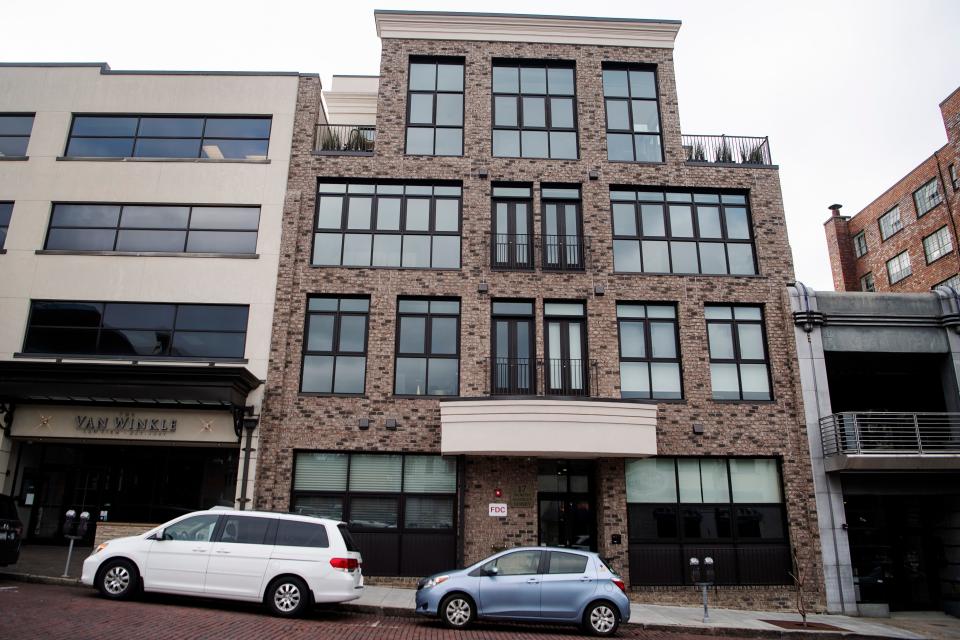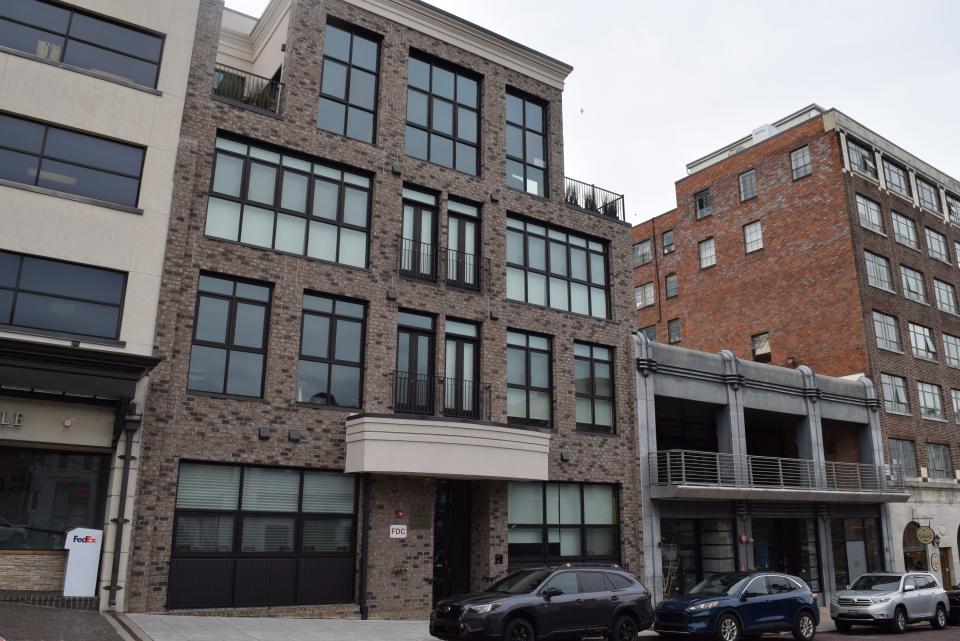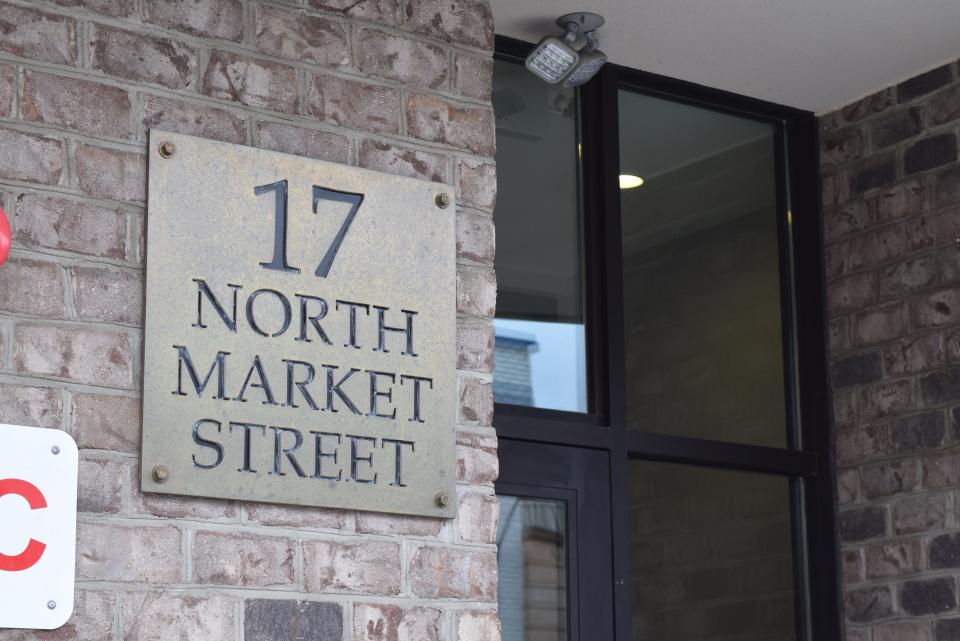Downtown Asheville condo owners file lawsuit after illegal Airbnbs play 'hide and seek'
ASHEVILLE - Downtown homeowners who lived next to nine illegal Airbnbs have filed a lawsuit against the owners of the short-term rental units, alleging the practice violated homeowner association covenants established for the 17 North Market St. building.
The lawsuit, filed March 27 in Buncombe County Superior Court, alleges owners who listed units on the Airbnb website broke covenants that limit the use of units to "single family residential, recreational and related purposes by renting the units as short-term rentals for transient purposes."
The lawsuit also claims the practice violated a covenant that states owners should not break city of Asheville laws and ordinances, which would include regulations on short-term rentals.

In 2018 the city limited the use of STRs — rentals of less than 30 days — to areas zoned as "Resort District," while still allowing the use of homestays — a type of rental property owners can apply to use if they live on the same property they rent. The Market Street Building is located in the Central Business District.
The legal complaint cites Citizen Times reporting on the effort to convert the downtown building to a mixed-use hotel to avoid short-term rental fines. The plaintiffs in the suit only first learned of the conversion project from the Jan. 17 Citizen Times article, according to the lawsuit.
Homeowners Christian and Kim Oliver, Ken and Joan Pierce, and Sam and Rosemary Elias filed the suit against 14 defendants who own 10 units in the building.
Full 17 N Market Lawsuit by willhofmann2 on Scribd
Land-use attorney Brian Gulden with Van Winkle Law Firm — which sits next door to the Market Street condos — is representing the plaintiffs. Asheville Mayor Esther Manheimer is an attorney at Van Winkle Law Firm, but she is not working on this case.
"It's just a lawsuit asking the court to determine if they breached their contract," Gulden told the Citizen Times. "That contract is the covenants each party is obligated to abide by."
The suit is seeking the court to declare parties' rights under the covenants and that defendants have breached the covenants. The suit also seeks an injunction from uses that violate local law and that defendants pay all costs of action.
"We'll look at the covenants and public offering statement as a support for limits on short-term renting and we'll look at the city to help us with their ordinance," Gulden told the Citizen Times.
The suit is also seeking to answer the question of whether the covenants would prohibit both the use of STRs and the further use of the building as a hotel. Gulden said the proposed hotel conversion would be "in complete violation of what the covenants say."

'Covenants actually allow short-term rentals,' 1 owner says
Brett Krueger, one of the building developers and owners being sued, told the Citizen Times in response to hearing about the lawsuit that he believes the "covenants actually allow for short-term rentals" — though current language included in the covenants does not directly mention the use of STRs.
"We were always led to believe that what we were doing was OK, so we never tried to intentionally violate any laws," Krueger told the Citizen Times.
During a 2018 Downtown Commission hearing on the condo development, members of city staff had indicated that the property would not include short-term rentals. Krueger had previously told the Citizen Times that he had "never told the city staff anything" about STR usage in the building.
While STRs are not addressed in the covenants, lease agreements are, along with language stating owners should not partake in any activity "which violates local, state or federal law or regulations."
Leases for a property at 17 North Market St. must be received by the homeowners association prior "to the occupancy by the tenant of such unit," along with other provisions requiring tenants to follow all association documents — a practice that never happened during the short-term rental of the units, said resident and plaintiff Ken Pierce.
"This private lawsuit to enforce HOA covenants in support of Asheville's STR ban could be an enforcement game changer," Ken Pierce, who sits on the board of the building's HOA, told the Citizen Times. "It will increase the city's housing stock while protecting individual property rights."
Since receiving the notices of violation in late-January, at least two units in the building have been offered as long-term rentals, according to a sign posted in the window of the building March 19.

Nighttime Airbnb 'hide-and-seek'
On Feb. 22, the Citizen Times reported the units had become compliant after city staff investigated the building, prompting the units to become month-long rentals.
Yet, those managing the properties continued to rent under the city's radar for several more days.
Emails obtained by the Citizen Times display what Ken Pierce termed "hide-and-seek" with the Airbnbs.
Monitoring website changes using a service called Visualping, research from Christian Oliver indicated seven Airbnbs on the property appeared to rent for only 30 days during city of Asheville work hours — from 8:30-5 p.m.
After work hours were over, bookings would allow for short-term rentals in the units, according to photos taken by city staff in late February and the Olivers research.
Before city staff started the next day, the rentals would then switch back to only renting for 30 days at a time — appearing to bring them back into compliance if city staff checked.
After the Olivers alerted city staff, a new investigation led to additional notices of violation being filed against seven of the Airbnbs at the location, according to documents released to the Citizen Times.
The practice of avoiding city regulations by automating the system to change from short-term to long-term rentals each night displayed a "willful intent to deceive," Christian Oliver noted in a Feb. 28 email to city staff.
Responding to Christian Oliver in an email, City Council member Sage Turner noted she did not think the city "ever tried" or "even discussed" the use of a website monitoring tool when discussing the regulation of Airbnbs.

Christian Oliver said the decision to list STRs overnight was part of the series of deception which led to the lawsuit.
"You did the hotel thing, right? That was very deceptive. Then you talked about compliance, but then you showed all of this deceptive capability to manipulate websites," Christian Oliver told the Citizen Times. "Those are two big strikes. There is no third strike."
Krueger chalked up the consistent overnight Airbnb switch — a practice that ended after it was reported Feb. 28 — to a possible glitch on the website.
"I don't know if there's a glitch on Airbnb," Krueger said of the rentals overnight switch. "I don't really know what happened."
Christian Oliver — who is the CEO of a defense technology company — disagrees.
"What they did was very specific. That's not a glitch. It was programmed," Christian Oliver said of the overnight switch. "It doesn't just automatically do that."
City threatens suit; Airbnb owner said city 'no longer pursuing' fines
In a letter dated Feb. 28, the city of Asheville notified Krueger he owed $13,500 in fines from short-term renting of unit 201 at the condo building. In the letter, Code Enforcement Officer Shannon Morgan noted non-payment "will be pursued by city officials in the Magistrate's Court (Small Claims) of the NC General Court of Justice."
After speaking with Morgan earlier this month, Krueger said city staff indicated they were "no longer pursuing the fines" against his property.
City spokesperson Kim Miller spoke to the Citizen Times and indicated "funds were not going to be pursued" as long as Krueger and other property owners remain in compliance with the city ordinance.
"If they fall out of compliance again, the city would reinstate the funds and pursue payment," Miller told the Citizen Times.
Kim Oliver believes the subsequent actions taken by those renting the properties show a clear "pattern of deceit," and encouraged the city to take a firmer stance on the issue.
"If the city's gonna have a law about it, then enforce the law or take it off the books so people like me don't buy here thinking it's going to be one way when it is really another," Kim Oliver told the Citizen Times.
While several of the units only allow 30-day rentals — meaning they are compliant under city rules — Asheville-based Shanti Mountain Properties has continued to offer the unit 202, owned by Nihar Patel through 17 N Market, LLC, as an STR, even after being cited for non-compliance from the city.
As of the night of March 29, a 17 N. Market St. condo appeared on Airbnb. A listing for "an entire rental unit in Asheville" with two king beds displayed photos with mustard and blue colored sofas in the living room, floor-to-ceiling windows looking over downtown, and the front of the brick building displaying a "17 North Market Street" plaque, advertised a stay from April 13-18 at $313 a night.
Shanti Mountain Properties did not respond to a Citizen Times request for comment by press time.
More: East Asheville 95-home development gets planning board OK; Haw Creek asks for more time
More: Former South Asheville golf club land sees new project with homes, townhomes for sale
Will Hofmann is the Growth and Development Reporter for the Asheville Citizen Times, part of the USA Today Network. Got a tip? Email him at [email protected]. Please help support this type of journalism with a subscription to the Citizen Times.
This article originally appeared on Asheville Citizen Times: Downtown Asheville homeowners file lawsuit against Airbnb unit owners
